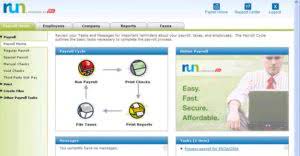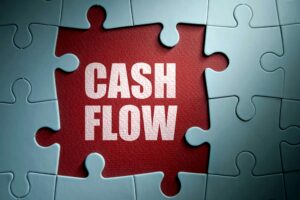
No matter which option the business chooses, the potential profit that it gives up by not investing in the other option is the opportunity cost. When economists refer to the “opportunity cost” of a resource, they mean the value of the next-highest-valued alternative use of that resource. If, for example, you spend time and money going to a movie, you cannot spend that time at home reading a book, and you can’t spend the money on something else.
Explicit Costs

If the government build a new road, then that money can’t be used for alternative spending plans, such as education and healthcare. Explicit and implicit costs can be viewed as out-of-pocket costs (explicit) and costs of using assets you own (implicit). While opportunity cost is not an exact measure, one way to quantify it is to estimate the potential future value that you opted not to receive and compare it with the value of the choice you made instead. The initial cost of bond “B” is higher than that of “A,” so you’d spend more hoping to gain more because a lower interest rate on more money can still create more gains. However, you’d have to make more than $10,000—the amount that came out of your pocket—to add value to bond “B.”

Opportunity Cost and Capital Structure
In some cases, recognizing the opportunity cost can alter personal behavior. However, if you project what that adds up to in a year—250 workdays a year × $5 per day equals $1,250—it’s the cost, perhaps, of a decent vacation. If the opportunity cost were described as “a nice vacation” instead of “$5 a day,” https://www.bookstime.com/articles/treasury-and-cash-management you might make different choices.

Private Ownership of Property: An In-Depth Look at the Principles of Economics
However, the single biggest cost of greater airline security doesn’t involve money. According to the United States Department of Transportation, more than 800 million passengers took plane trips in the United States in 2012. Since the 9/11 hijackings, security screening has opportunity cost means that something needs to be become more intensive, and consequently, the procedure takes longer than in the past.
- See this interesting survey which shows people have very different responses when they understand the opportunity cost involved in a tax cut.
- Risk evaluates the actual performance of an investment against its projected performance.
- But the single biggest cost of greater airline security does not involve spending money.
- Opportunity cost reflects the possibility that the returns of a chosen investment will be lower than the returns of a forgone investment.
- In this example, the opportunity costs are continued interest gains on bond “A” and the initial loss of $10,000 on bond “B” while hoping to recover it and increase your profits in the future.
- The opportunity cost of spending all day watching TV is that you are not able to do any study during the day.
Investing in Education

So the opportunity cost of changing fields may include more tuition and training time, but also the cost of the job this is left behind (as well as the potential salary of a job in the new field). The opportunity cost of a future decision does not include any sunk costs. 3.Allocating Resources in a Business In a business setting, opportunity cost can be seen in resource allocation decisions. For instance, if a company decides to invest in new equipment, the opportunity cost would be the other potential uses of that money, such as hiring more employees or expanding into new markets. These are recording transactions just a few examples of how opportunity cost affects our daily lives and economic decision-making.
Implicit costs
Economics helps us understand the decisions that individuals, families, businesses, or societies make, given the fact that there are never enough resources to address all needs and desires. Accounting profit is the net income calculation often stipulated by the generally accepted accounting principles (GAAP) used by most companies in the U.S. Under those rules, only explicit, real costs are subtracted from total revenue. Opportunity cost reflects the possibility that the returns of a chosen investment will be lower than the returns of a forgone investment. Assume that a business has $20,000 in available funds and must choose between investing the money in securities, which it expects to return 10% a year, or using it to purchase new machinery. That an amazing invention has never been found in some secret warehouse does nothing to reduce people’s belief that such things exist; they’re hidden, aren’t they?
- We are compensated in exchange for placement of sponsored products and services, or by you clicking on certain links posted on our site.
- Therefore, this compensation may impact how, where and in what order products appear within listing categories, except where prohibited by law for our mortgage, home equity and other home lending products.
- It allows individuals and businesses to make informed choices by considering the trade-offs and implications of their decisions.
- So next time you are faced with a decision, remember to consider the opportunity cost and make the best choice for yourself and your economic well-being.
- On a basic level, opportunity cost is a common-sense concept that economists and investors like to explore.
- Nations must decide whether to devote more funds to national defense or to protecting the environment.
Sunk costs
Additionally, opportunity cost also plays a role in the law of supply and demand. When there is a high demand for a certain good or service, its price increases, making the opportunity cost of producing that good or service more attractive for businesses. This can lead to an increase in supply and a decrease in demand as consumers may opt for cheaper alternatives. In terms of economic systems, opportunity cost is a crucial factor in determining the most efficient allocation of resources. In a market economy, businesses must consider the opportunity cost of producing goods and services in order to maximize profits.
The Principles of Economics: Understanding the Challenges and Benefits
Buying more sophisticated security equipment for airports, like three-dimensional baggage scanners and cameras linked to face recognition software, could cost another $2 billion. Any effort to make a prediction must rely heavily on estimates and assumptions. There’s no way of knowing exactly how a different course of action would play out financially over time.
Therefore we are concerned with the optimal use and distribution of these scarce resources. If we have £20, we can spend it on an economic textbook, or we can enjoy a meal in a restaurant. Therefore, many choices involve an opportunity cost – having to make choices between the two.

